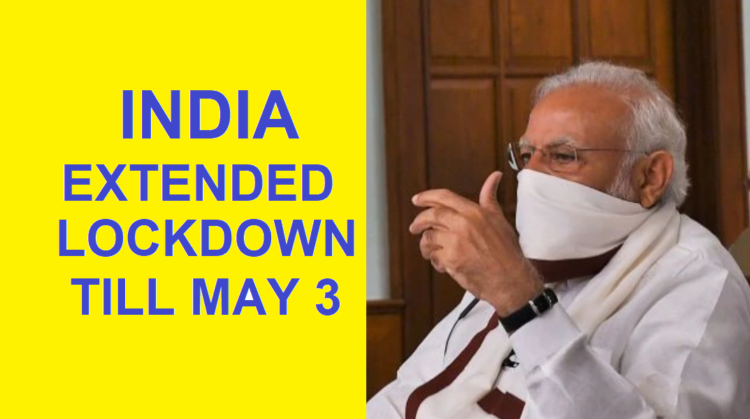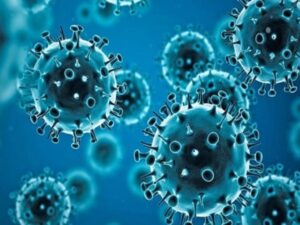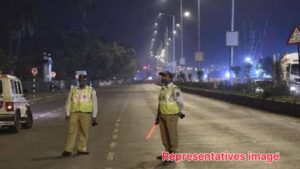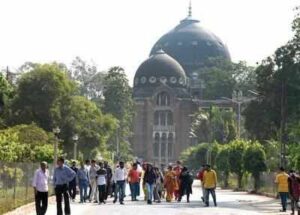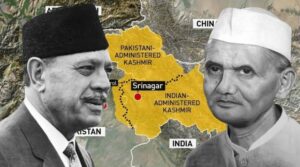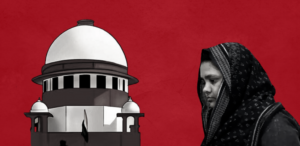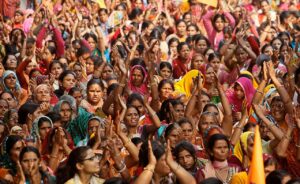Ministry of Home Affairs (MHA) has revised guidelines on the measures that need to be taken by the authorities for containment of coronavirus in the country.
Before allowing the activities, States/UTs/District Administrations will ensure preparatory arrangements for social distancing in offices, workplaces, factories, and establishments. State/UT Governments shall adhere to the guidelines under the Disaster Management Act, 2005.
Selected few activities will be allowed from 20th April:
All Health services including AYUSH to remain functional such as:
- Hospitals, nursing homes, clinics, telemedicine facilities, dispensaries, chemists, pharmacies, all medical shops including Jan Aushadhi Kendras and medical equipment shops, medical labs and collection centers, pharmaceuticals, medical research labs, institutions carrying out COVID-19 related research, veterinary hospitals, pathology labs, sale and supply of vaccine and medicine, manufacturing units of drugs, medical devices, medical oxygen, packaging, and raw material,
- Authorized private establishments, which support the provisioning of essential services, or efforts of containment of COVID-19, including home care providers, diagnostics, supply chain firms serving hospitals.
- Construction of medical/health infrastructure including the manufacture of ambulances.
- Movement (inter and intrastate, including by air) of all medical and veterinary personnel, scientists, nurses, para-medical staff, lab technicians, midwives, and other hospital support services, including ambulances.
Agricultural and related activities:
- Farming by farmers and farmworkers in the field, agencies engaged in procurement of agricultural products, Mandis operated by the Agriculture Produce Market Committee (APMC) or as notified by the State/UT Government (e.g., satellite mandis). Direct marketing operations by the State/UT Government or by industry, directly from farmers/groups of farmers, FPO’s co-operatives, etc. States/UTs may promote decentralized marketing and procurement at the village level.
- Shops of agricultural machinery, spare parts (including supply chain) and repairs to remain open.
- ‘Custom Hiring Centres (CHC)’ related to farm machinery.
- Manufacturing, distribution and retail fertilizers, pesticides and seeds.
- Movement of harvesting and sowing related machines like combined harvester and other agriculture/horticulture implements.
- Operation of fishing (marine and inland)/ aquaculture industry, including feeding and maintenance, harvesting, processing, packaging, cold chain, sale, and marketing.
- Hatcheries (where eggs are hatched under artificial conditions), food plants, commercial aquaria, movement of fish/shrimp and fish products, fish seed/feed and workers for all these activities.
- Operations for tea, coffee, rubber plantations with a maximum of 50% of workers.
- Processing, packaging, sale, and marketing of tea, coffee, rubber and cashews with a maximum 50% of workers.
- Collection, processing, distribution, and sale of milk and milk products by milk processing plants, including transport and supply chain.
- Operation of animal husbandry farms including poultry farms and hatcheries and livestock farming activity.
- Operation of animal shelter homes, including Gaushalas.
Financial Sector:
- Reserve Bank of India (RBI) and RBI regulated financial markets and entities like NPCL, CCIL, payment operators and standalone primary dealers will be functional.
- Bank branches and ATMs, IT vendors for banking operations, Banking Correspondents (BCs), ATM operation and cash management agencies.
- Bank branches will be allowed to work as per normal working hours till disbursal of DBT cash transfers is complete.
- Local administration to provide adequate security personnel at bank branches and BCs to maintain social distancing, law, and order and staggering of account holders.
- SEBI, IRDAI, and insurance companies.
Social Sector:
- Operation of homes for children/ disabled/ mentally challenged/senior citizens/destitutes/women/widows, observation homes, aftercare homes, juvenile safety homes, operation of anganwadis – distribution of food items and nutrition once in 15 days at the doorsteps of beneficiaries, e.g., children, women and lactating mothers. Beneficiaries will not attend the Anganwadis.
Online teaching and learning:
- All educational, training, coaching institutions are expected to maintain the academic schedule through online teaching.
Maximizing the use of Doordarshan (DD) and other educational channels for teaching purposes can be used.
MNREGA:
- MNREGA works will be allowed with strict implementation of social distancing and face mask.
- Priority to be given under MNREGA to irrigation and water conservation works.
- Other central and state sector schemes in irrigation and water conservation sectors may also be allowed to be implemented.
Provide a boost to the rural economy especially to the industries working in rural areas, including food processing industries, construction of roads, irrigation projects, buildings and industrial projects in rural areas. These activities will create labor, including migrant labor force.
Public utilities to remain functional:
- Operations of Oil and Gas sectors, including refining, transportation, distribution, storage and retail of products, e.g., petrol, diesel, kerosene, CNG, LPG, PNG, etc.
- Generation, transmission, and distribution of power at Central and State/UT levels.
- Postal services, including post offices.
- Operations of utilities in water, sanitation and waste management sectors, at municipal/local body levels in States and UTs.
- Operation of utilities providing telecommunications and internet services.
Movement of Cargo:
- All goods traffic will be allowed.
- Operation of railways (transportation of goods and parcel trains), airports and related facilities for air transport for cargo movement, relief, and evacuation.
- Operation of seaports and inland container depots (ICDs) for cargo transport, including authorized custom clearing and forwarding agents.
- Operation of land ports for cross land border transportation of essential goods, including petroleum products and LPG, food products, medical supplies.
- Movement of all trucks and other goods/carrier vehicles with two drivers and one helper subject to the driver carrying a valid driving license; an empty truck/vehicle will be allowed to ply after the delivery of goods, or for pick-up of goods.
- Shops for truck repairs and dhabas on highways.
- Movement of staff and contractual labor for operations of railways, airports/air carriers, seaports/ships/vessels, land ports, and ICDs is allowed on passes being issued by the local authority on the basis of authorization issued by respective designated authorities.
Supply of essential goods is allowed, as under:
- All facilities in the supply chain of ‘essential goods’, whether involved in manufacturing, wholesale or retail of such goods through local stores, large brick and mortar stores or e-commerce companies should be allowed to operate, ensuring strict social distancing. Delivery is allowed of only ‘essential goods.
- Shops (including kirana and single shops selling essential goods) and carts, ration shops, dealing with food and groceries, hygiene items, fruits and vegetables, dairy and milk booths, poultry(eggs), meat and fish, animal feed and fodder, etc, should be allowed to operate, ensuring strict social distancing.
- District authorities may encourage home delivery to reduce the movement of individuals outside their homes.
Commercial and Private Establishments allows:
- Print and electronic media including Broadcasting, DTH and cable services.
- IT-enabled services with 50% of workers.
- Data and call centers for government activities only.
- Government-approved Common Services Centres at Gram Panchayat level.
- E-Commerce companies. Vehicles used by e-commerce operators will be allowed to ply with necessary permissions.
- Courier Services.
- Cold storages and warehousing services including ports, airports, railway stations, container depots, individual units, and other links.
- Private security services and facilities management services for maintenance and upkeep of office and residential complexes.
- Hotels, homestays, lodges, and motels which accommodates tourists and people stranded due to lockdown, medical and emergency staff air and sea crew.
- Establishments used/marked for quarantine facilities.
- Services provided by self-employed persons like electricians, IT, repairs, plumbers, motor mechanics, and carpenters.
Manufacturing and other industrial establishments:
- Access control has been permitted in Special Economic Zones (SEZs), Export Oriented Units (EoUs), industrial estates, and industrial townships after implementation of SOP for social distancing.
- Industries operating in rural areas, i.e, outside the Municipal Corporation limits.
- Manufacturing units of essential goods, including drugs, pharmaceuticals, medical devices, their raw material, and intermediates.
- Manufacture of IT hardware, essential goods and packaging are allowed.
- Food processing industries in rural areas, i.e., outside the limits of municipal corporations and municipalities.
- Production units, which require a continuous process, and their supply chain.
- Manufacturing units of packaging materials
- Coal, mines and mineral production, their transportation, the supply of explosives and activities incidental to the mining operation.
- Jute industries with staggered shifts and social distancing.
- Oil and gas exploration/refineries production is allowed. It’ll revive the manufacturing sectors and will create job opportunities while maintaining social distancing.
- Brick kilns in rural areas, i.e, outside the limits of municipal corporations and municipalities.
Construction Activities:
- Construction of roads, irrigation projects, buildings and all industrial projects including MSMES, in rural areas, i.e., outside the limits of municipal corporations and municipalities and all kinds of industrials projects.
- Construction of renewable energy projects.
- Continuation of works in construction projects, within the limits of municipal corporations and municipalities, where workers are available on site and no workers are needed to be brought in from outside.
Offices of the Government of India, it’s autonomous/ Subordinate Offices will remain open, as mentioned below:
- Defense, Central Armed Police Forces, Health and Family Welfare, Disaster management and Early Warning Agencies (IMD, INCOIS, SASE and National Centre of Seismology. CWC), National Informatics Centre (NIG), Food Corporation of India (FCI), NCC, Nehru Yuva Kendras (NYKs) and Customs to function without any restriction.
- Other Ministries and Departments, and offices under their control, are to function with 100% attendance of Deputy Secretary and levels above that. Remaining officers and staff to attend up to 33 percent as per requirement.
Offices of the State/ Union Territory Governments, their Autonomous Bodies and Local Governments will remain open, as mentioned below:
- Police, home guards, civil defense, fire and emergency services, disaster management, prisons, and municipal services will function without any restrictions.
- All other Departments of State/ UT Governments to work with restricted staff. Group ‘A’ and ‘B’ officers may attend as required. Group ‘C’ and levels below that may attend up to 33 percent of strength, as per the requirement to ensure social distancing. However, the delivery of public services shall be ensured, necessary staff will be deployed for such purpose.
- District administration and Treasury (including field offices of the Accountant General) will function with restricted staff. However, the delivery of public services shall be ensured, and the necessary staff will be deployed for such purpose.
- Resident Commissioner of States/ UTs, in New Delhi, only to the extent of coordinating COVID-19 related activities and internal kitchen operations.
- Forest offices: staff/ workers required to operate and maintain zoo, nurseries, wildlife, fire-fighting in forests, watering plantations, patrolling and their necessary transport movement.
Persons to remain under mandatory quarantine, as under:
- All such persons who have been directed by health care personnel to remain under strict home/ institutional quarantine for a period as decided by local Health Authorities.
- Persons violating quarantine will be liable to legal action under Section 188 of the IPC, 1860.
- Quarantined persons, who have arrived in India after 15.2.2020, after the expiry of their quarantine period and being tested COVID-19 negative, will be released following the protocol prescribed in the SOP issued by MHA.
The revised guidelines also permit all health and social services to remain functional, public utilities to function without any hindrance, operation of essential goods’ supply chain without any hindrance and important offices of Central and State Governments and local bodies to remain open with the required strength.

